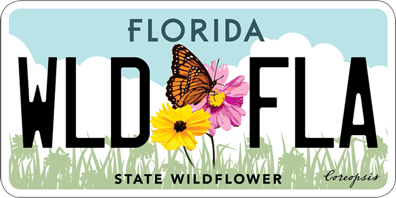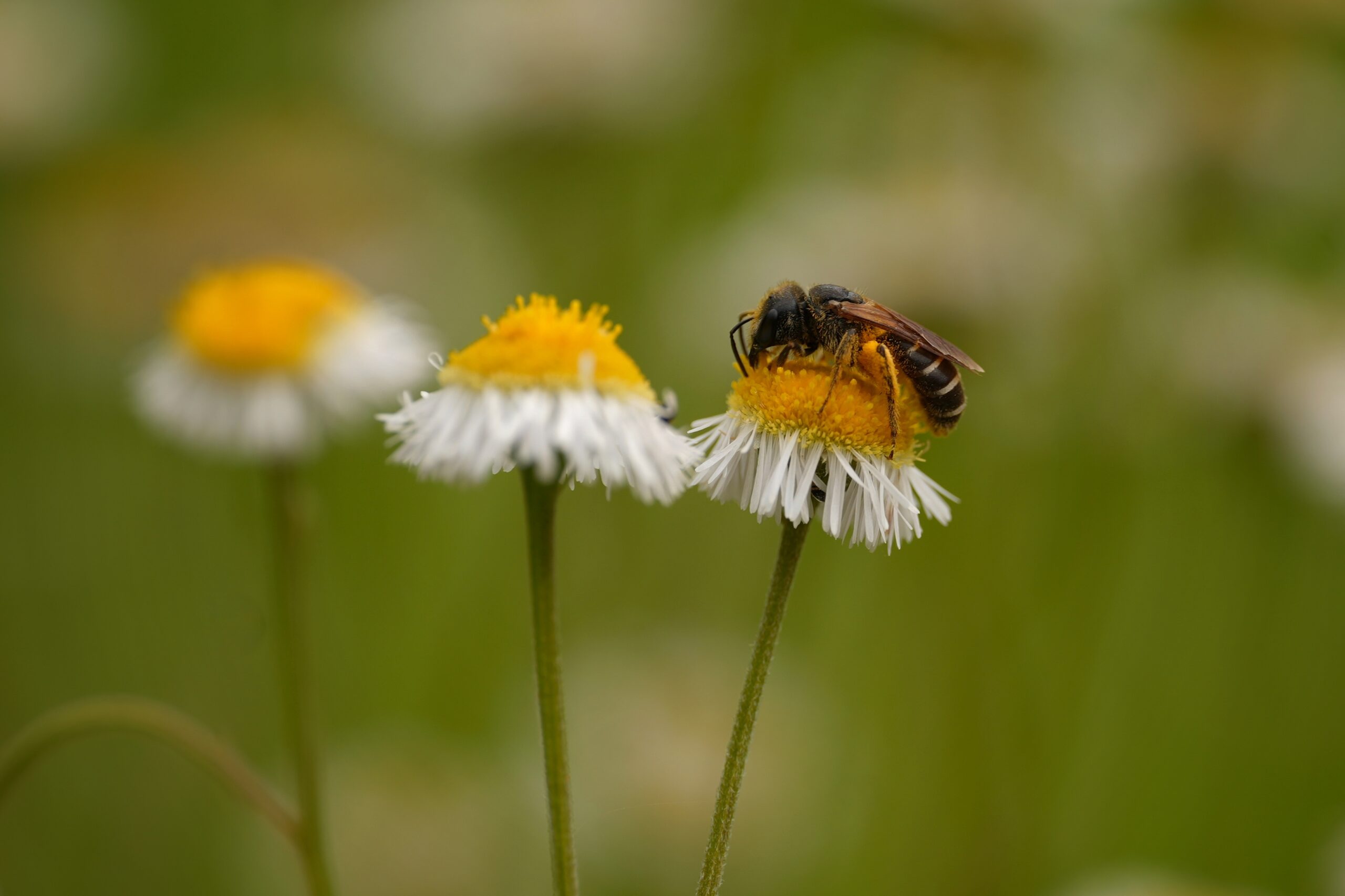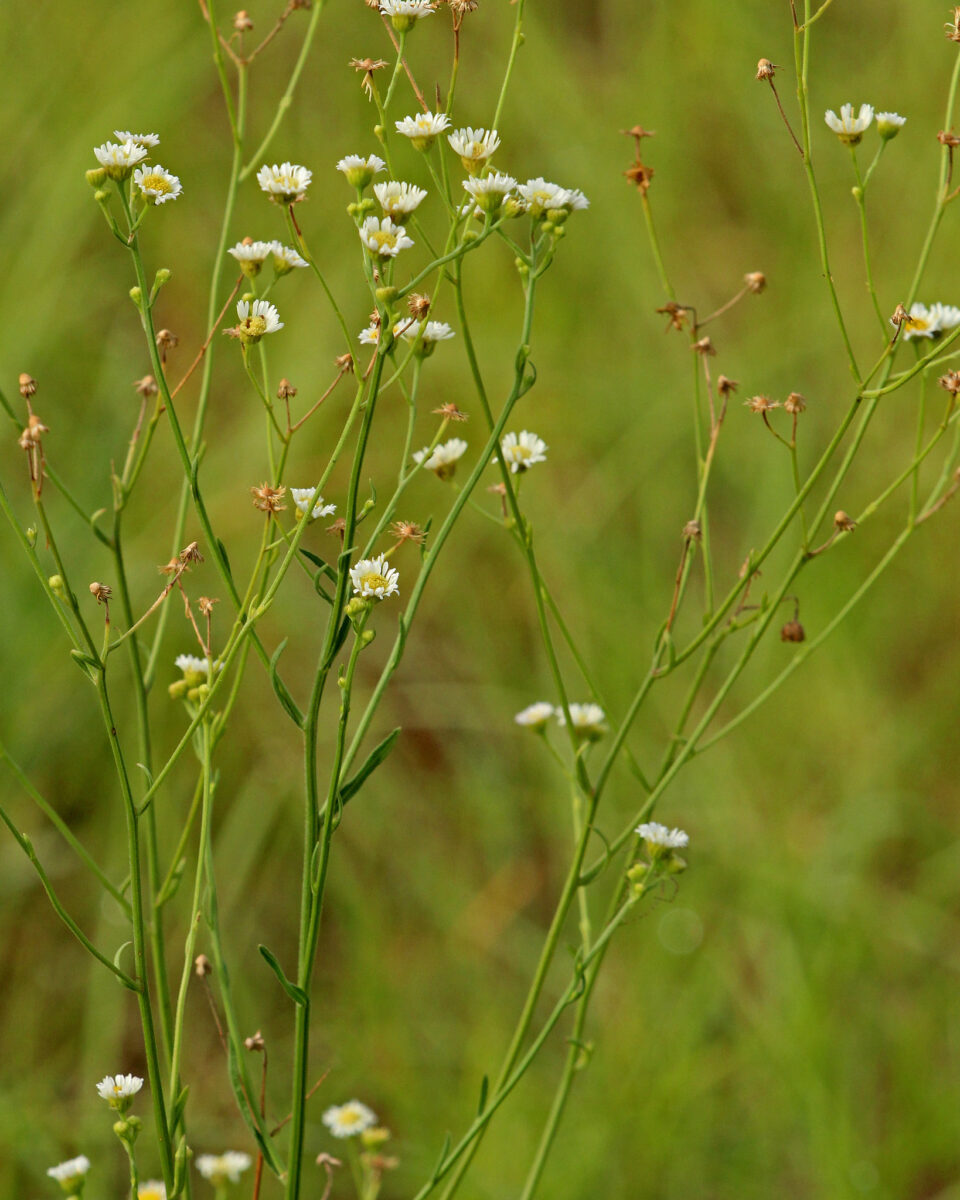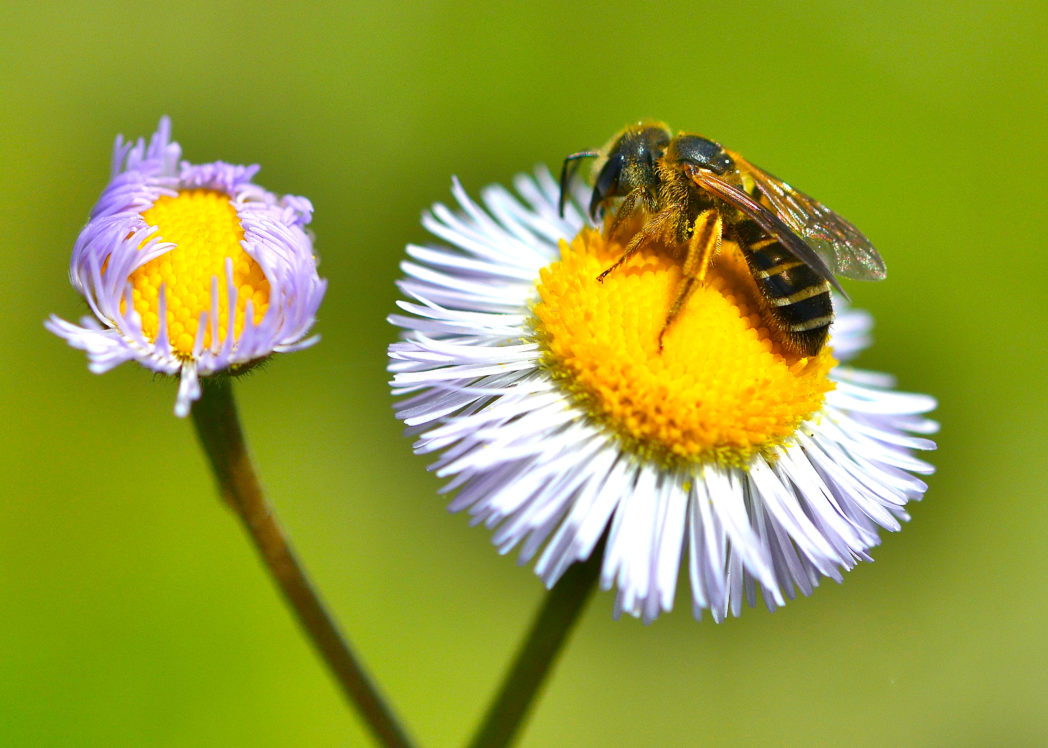Prairie fleabane
Pictured above: Prairie fleabane (Erigeron strigosus) by Emily Bell. Click on terms for botanical definitions. View post as a PDF.
Also known as Daisy or Rough fleabane, Prairie fleabane (Erigeron strigosus) is a petite wildflower that occurs naturally in dry open woodlands, roadsides and other disturbed sites. Its abundant white and yellow flowers are a valuable nectar source for small butterflies and bees.
Prairie fleabane has slender, ribbed, light green cymose stems with appressed white hairs. Numerous, less-ribbed lateral stems branch out from the upper half of the plant. Its composite flowers are about ½ inch across, with white to very light pink or purple-tinted ray florets and bright yellow disk florets. Leaves are alternate and linear, with mostly entire margins, though some may be slightly toothed, especially at the base. The upper leaf surfaces are generally hairless, while the undersides are pubescent along the central vein.
Family: Asteraceae (Aster, composite or daisy family)
Native range: Panhandle into peninsular Florida to DeSoto and Highlands counties
To see where natural populations of Oakleaf fleabane have been vouchered, visit florida.plantatlas.usf.edu.
Lifespan: Annual to short-lived perennial
Soil: Dry sandy soils
Exposure: Full sun
Growth habit: 1-3 feet tall
Propagation: Seed
Florida regions of landscape suitability: North, Central
Garden tips: Prairie fleabane is best utilized in a meadow or naturalistic setting. It is easily propagated by seed and may become weedy if left to its own devices.
Prairie fleabane seeds are often available from the Florida Wildflower Growers Cooperative at www.FloridaWildflowers.com.
For more information on other Erigeron species, see these resources:



